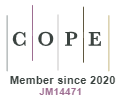Lições aprendidas na implementação de ERP na modalidade SAAS: na perspectiva da equipe de projeto multilocalizada e stakeholders
DOI:
https://doi.org/10.5585/iptec.v9i1.18698Palavras-chave:
ERP, SAAS, Equipe multilocalizada, Stakeholders, Lições aprendidas.Resumo
O crescente aumento de banda de Internet e as rápidas mudanças nas necessidades de negócio, está levando as organizações a adotarem infraestruturas de sistemas de informação que sejam econômicas e flexíveis. O objetivo deste relato é apresentar na perspectiva da equipe de projeto multilocalizada e stakeholders, um modelo que foi elaborado por meio de lições aprendidas, que minimizará os desafios na implementação de Enterprise Resource Planning (ERP) em nuvem, na modalidade SaaS - Software as a Service. Para alcançar o objetivo proposto, os dados foram coletados da documentação do projeto, além da participação direta de um dos autores. Os resultados apresentam um modelo de implementação do ERP com soluções práticas para mitigarem os desafios de: mudança de processos na implementação do ERP; disponibilidade da equipe funcional para participação durante a validação e redesenho dos processos de negócio da organização; disponibilidade dos stakeholders para validação das atualizações constantes do produto; gerenciamento de equipes multilocalizadas. A contribuição do relato é, por meio das lições aprendidas, fornecer um modelo para as empresas que trabalham com implementação de sistemas.
Downloads
Referências
Arditi, D., Nayak, S., & Damci, A. (2017). Effect of organizational culture on delay in construction. International Journal of Project Management, 35, 136-147.
Avram, M. G. (2014). Advantages and challenges of adopting cloud computing from an enterprise perspective. Procedia Technology Systems, 12(1), 529-534.
Benlian A. & Hess, T., (2011). Opportunities and risks of software-as-a-service: Findings from a survey of IT executives. Decision Support Systems, 52(1), 232-246.
Biancolino, C. A., Kniess, C. T., Maccari, E. A., & Rabechini, R., Jr. (2012). Protocolo para elaboração de relatos de produção técnica. Revista de Gestão e Projetos – GeP, 3(2), 294–307.
Bjorn, P., & Ngwenyama, O. (2009). Virtual team collaboration: building shared meaning, resolving breakdowns and creating translucence. Information Systems Journal, 19(3), 227–253.
Daim, T. U., Ha, A., Reutiman, S., Hughes, B, Pathak, U., Bynum, W. & Bhatla, A. (2012). Exploring the communication breakdown in global virtual teams. International Journal of Project Management, 30(2), 199-212.
Duffield, S. M. & Whitty, S. J. (2016). Application of the Systemic Lessons Learned Knowledge model for Organisational Learning through Projects. International Journal of Project Management, 34(7), 1280–1293.
Hofmann, P. & Woods, D. (2010). Cloud Computing: The Limits of Public Clouds for Business Applications. IEEE Internet Computing, 14(6), 90-93.
Holland, C. P., & Light, B. (1999). A Critical Success Factors Model For ERP Implementation. IEEE Software, 16, 30-36.
Hsu, P. F., Ray, S. & Hsieh, Y. L. (2014). Examining cloud computing adoption intention, pricing mechanism, and deployment model. International Journal of Information Management, 34(4), 474-488.
Jugdev, K. (2012). Learning from lessons learned: Project management research program. American Journal of Economics and Business Administration, 4(1), 13.
Keeys, L. A., & Huemann, M. (2017). Project benefits co-creation: Shaping sustainable development benefits. International Journal of Project Management, 35(6), 1196–1212.
Kirmizi, M. & Kocaoglu, B. (2021). The influencing factors of enterprise resource planning (ERP) readiness stage on enterprise resource planning project success: a project manager’s perspective. Kybernetes, ahead-of-print.
Klaus, H., Rosemann, M. & Gable, G. G. (2000). What is ERP?. Information Systems Frontiers, 2(2), 141‐162.
Marston, S., Li, Z., Bandyopadhyay, S., Zhang, J., & Ghalsasi, A., (2011). Cloud computing - The business perspective. Decision Support Systems, 51(1), 176-189.
McClory, S., Read, M. & Labib, A. (2017). Conceptualising the lessons-learned process in project management: Towards a triple-loop learning framework. International Journal of Project Management, 35 (7), 1322-1335.
Mital, M., Pani, A. K., & Ramesh, R., (2014). Determinants of choice of semantic web based Software as a Service: An integrative framework in the context of e-procurement and ERP. Computers in Industry, 65(5), 821-827.
Ross, J. W. & Vitale, M. R., (2000). The ERP Revolution: Surviving vs. Thriving. Information Systems Frontiers, 2(2), 233-241.
Seethamraju, R. (2014). Adoption of Software as a Service (SaaS) Enterprise Resource Planning (ERP) Systems in Small and Medium Sized Enterprises (SMEs). Information Systems Frontiers, 17(3), 475-492.
Sommerville, I. (2011). Engenharia de Software. 9 ed, São Paulo: Pearson Prentice Hall.
Turner, R. & Zolin, R. (2012). Forecasting success on large projects: developing reliable scales to predict multiple perspectives by multiple stakeholders over multiple time frames. Project Management Journal, 43 (5), 87–99.
Weimann, P., Pollock, M., Scott, E. & Brown, I. (2013). Enhancing Team Performance Through Tool Use: How Critical Technology-Related Issues Influence the Performance of Virtual Project Teams. IEEE Transactions on Professional Communication, 56(4), 332-353.
Downloads
Publicado
Como Citar
Edição
Seção
Licença
Copyright (c) 2021 Revista Inovação, Projetos e Tecnologias – IPTEC

Este trabalho está licenciado sob uma licença Creative Commons Attribution-NonCommercial-ShareAlike 4.0 International License.
- Resumo 489
- PDF 405






